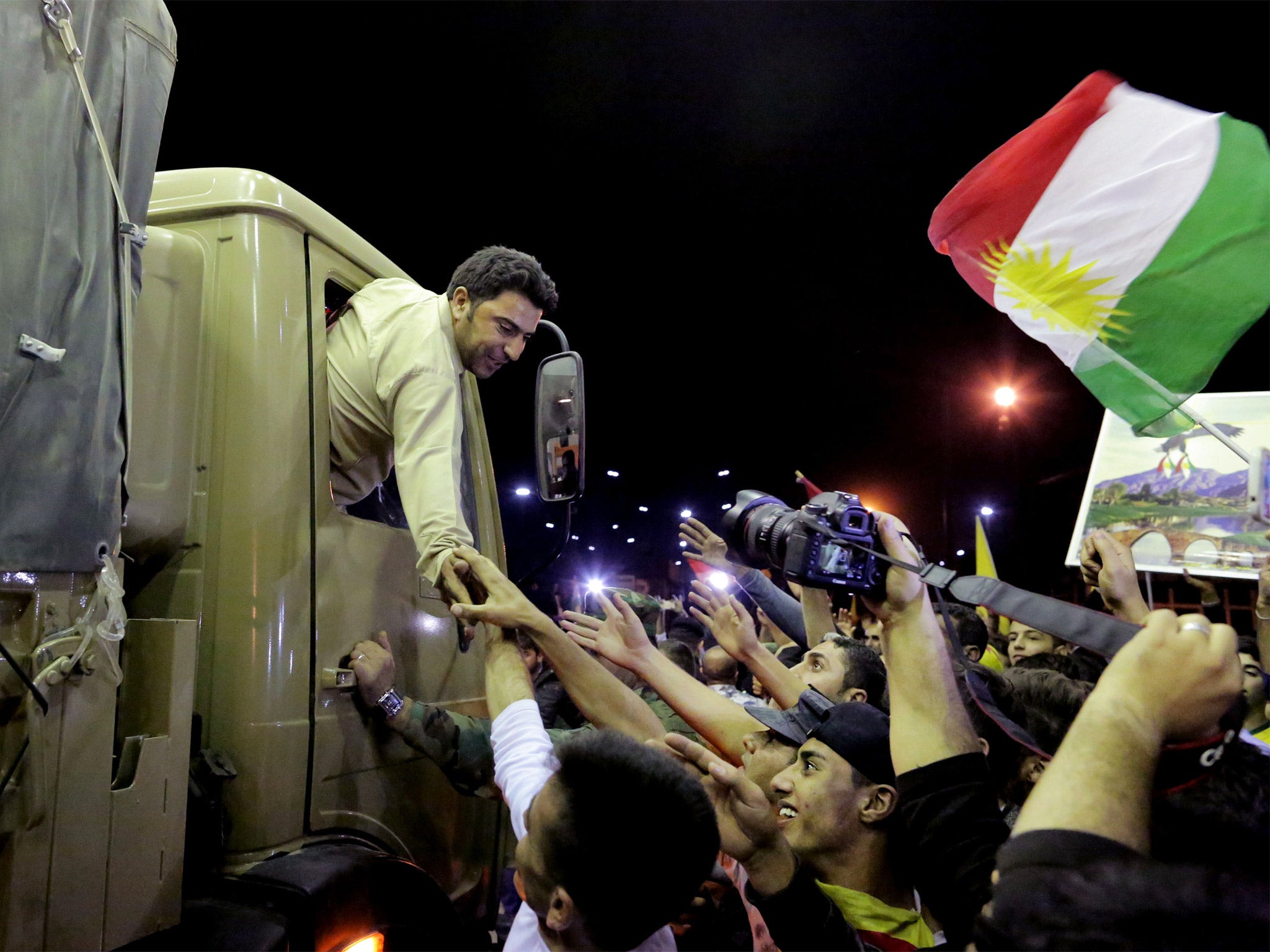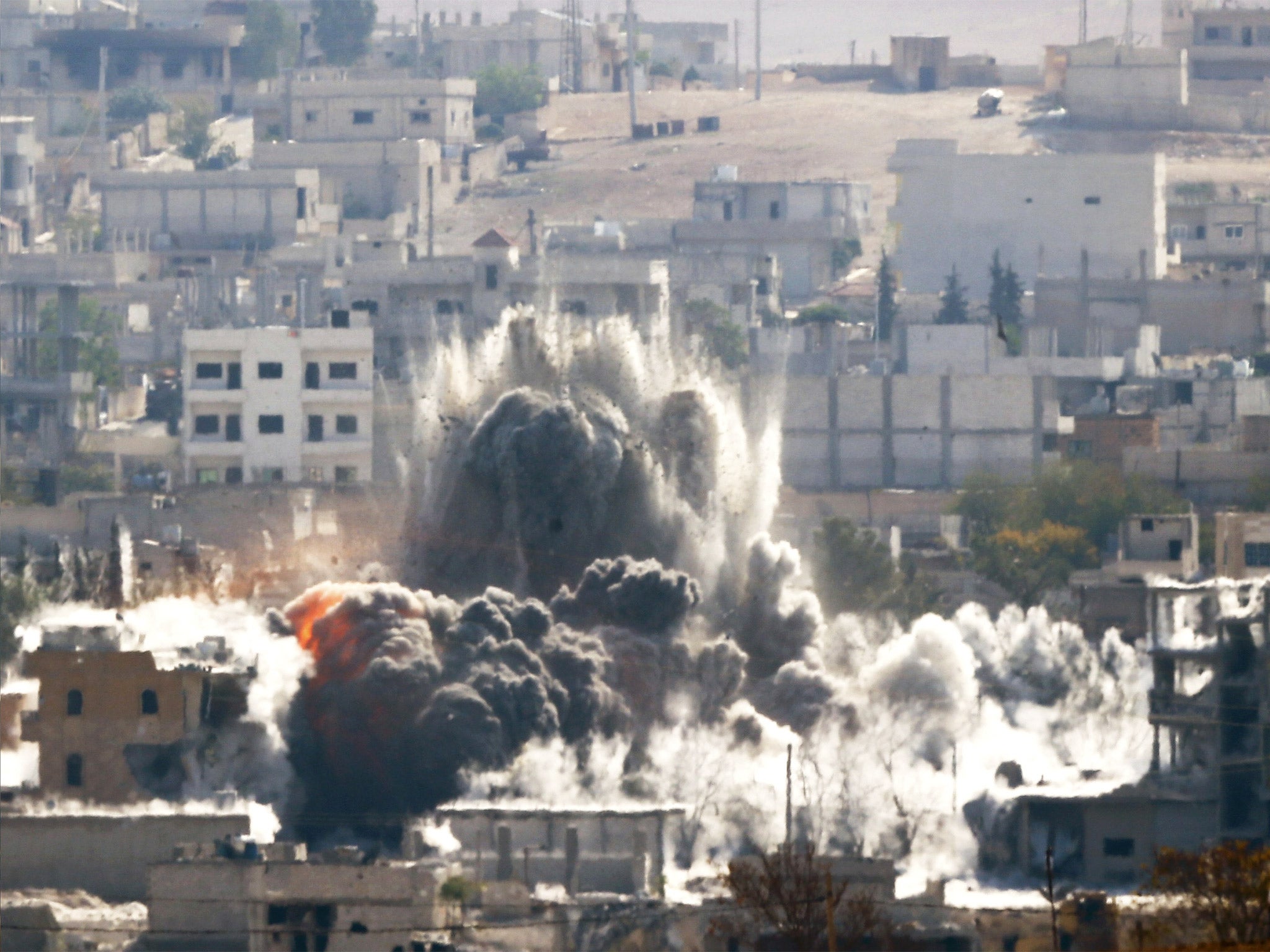Isis in Syria: General reveals the lack of communication with the US - and his country's awkward relationship with their allies-by-default
A senior officer of Bashar al-Assad’s regime talks to Robert Fisk about his army’s brutal struggle with Isis, in a dirty war whose challenges include widespread atrocities

Phones were ringing through the army headquarters in central Damascus and a veteran of Syria's 1982 war with Israel in Lebanon was explaining how all wars involved victories and defeats - that Syria's forces also suffered setbacks in their war against “terrorism” - when the news arrived at his own desk. A flurry of calls established that Jabhat al-Nusra rebels had stormed into the centre of Idlib, the surrounded but still government-held city west of Aleppo; that they had captured the governor's office and were beheading senior Syrian officers. Our interview was not intended to have gone quite like this. It was a good day to see the general. Which means it was a bad day.
The leading Syrian army officer, who requested anonymity, takes a shrewd view of events - and history - and clearly had no objection to America's air strikes on Isis targets in his country, although he viewed them dispassionately. “Our army doesn't know where or when these strikes are going to happen,” he said. “We see aircraft on our radar - we can see everything - but if our checkpoints (on the front) see the strikes, it is only by chance. We and the Americans are not sharing information with each other. The Americans just do it. It's natural. They decide in the UN that they are going to do these strikes. Syria says 'yes'. We are fighting 'Daesh' (Isis) and the other terrorist groups. But America never asked us about their targets.”
But not Idlib. The phones rang again. “Nusra tried to infiltrate into the city, but we foiled them,” he said triumphantly. True. But the general didn't mention - perhaps did not even then know - that his own comrades were being beheaded, even as the army was about to recapture the governor's office. By chance, I had been asking the general about Raqqa province, whose last military fortress and airbase was captured by Isis and Jabhat al-Nusra this year. Videos showed hundreds of Syrian soldiers being executed beside mass graves, one even showed two fighter jets being towed through the streets by rebels. And within days, reports from outside Syria spoke of Isis being trained on Mig-21s by former Iraqi pilots.
He knew about the jets. “This is cheap propaganda - these were old, unflyable jets that stood near the airbase gates. If they could have been flown, we would have taken them away. They were very old Mig-17s, junk jets without radar or control. We couldn't rebuild them - and nor can they. Even the Russians can't rebuild them. We know everything that is flying over Syria - even the American planes - but these old Migs can never leave the ground.”
As for Raqqa and its citizens and the fate of his soldiers, he was visibly angry. “Isis is reactionary, trying to represent the past - the medieval era. There are executions, torture, they are telling people they are practising sharia. And they are teaching children how to behead people....” The general would not speculate on how many of Syria's soldiers had been murdered in Raqqa. “I can't give you exact numbers - some are still missing, videos can be doctored. We don't take Isis's word for anything. There are soldiers who have been captured. We don't know how many.” Unknown to the general, up to 70 soldiers had just been beheaded in Idlib.
I was surprised, I said, that Syria does not call these executions war crimes - as Syria's enemies always accuse Syria of war crimes. But it was clear from his reply that this is a war without any prisoners. “The Syrian Arab Army has been in open war with terrorists for four years. Of course we are feeling angry. We have setbacks and they are targeted by us every day. We are killing hundreds of them. I am not going to give Syria to these stupid people. We are fighting to the death. But we are for a political resolution. We are concerned that in the end there must only be a political resolution for Syria. Eliminate the terrorists - all the people in the world are against them - and anyone who carries weapons against Syrian soldiers or the Syrian government or civilian people is involved in terrorism. We will deal with them. America did this because a journalist was murdered - it was a pretext for America to come to Syria. But we are going to eliminate all the terrorists on Syrian soil. In my opinion, we are cooperating with the Coalition because we said 'yes' when they attacked Isis. The UN resolution was a sign of cooperation.”

As for the battle of Ain al-Arab, or Kobani, on the Turkish border - famous on television screens around the world - the general had some cynicism. “We must separate the military and the political. Ain al-Arab is a Syrian town, the majority of its people are Kurds and Isis attacked them, just to control it. And to base themselves there, because it's a border town. Politically, however, there is something of a theatre about this. The Turks want to have a buffer zone and to pressure the US to give them this buffer zone. And the Americans are trying to push Turkey into the war situation. This is the 'headline'! But they are trying to use each other, the Turks and the Americans, and Ain al-Arab's civilians are paying the cost of this.”
As for the FSA into which the US put so much faith, he laughs. “There may be some in Idlib and near Deraa.”There were soldiers and some officers who defected from the Syrian army,” he said. “Some asked to come back and are in our army again. Others returned and we sent them home.” More Dad's Army, it would seem to the general, than the Free Syrian Army.
Join our commenting forum
Join thought-provoking conversations, follow other Independent readers and see their replies
0Comments